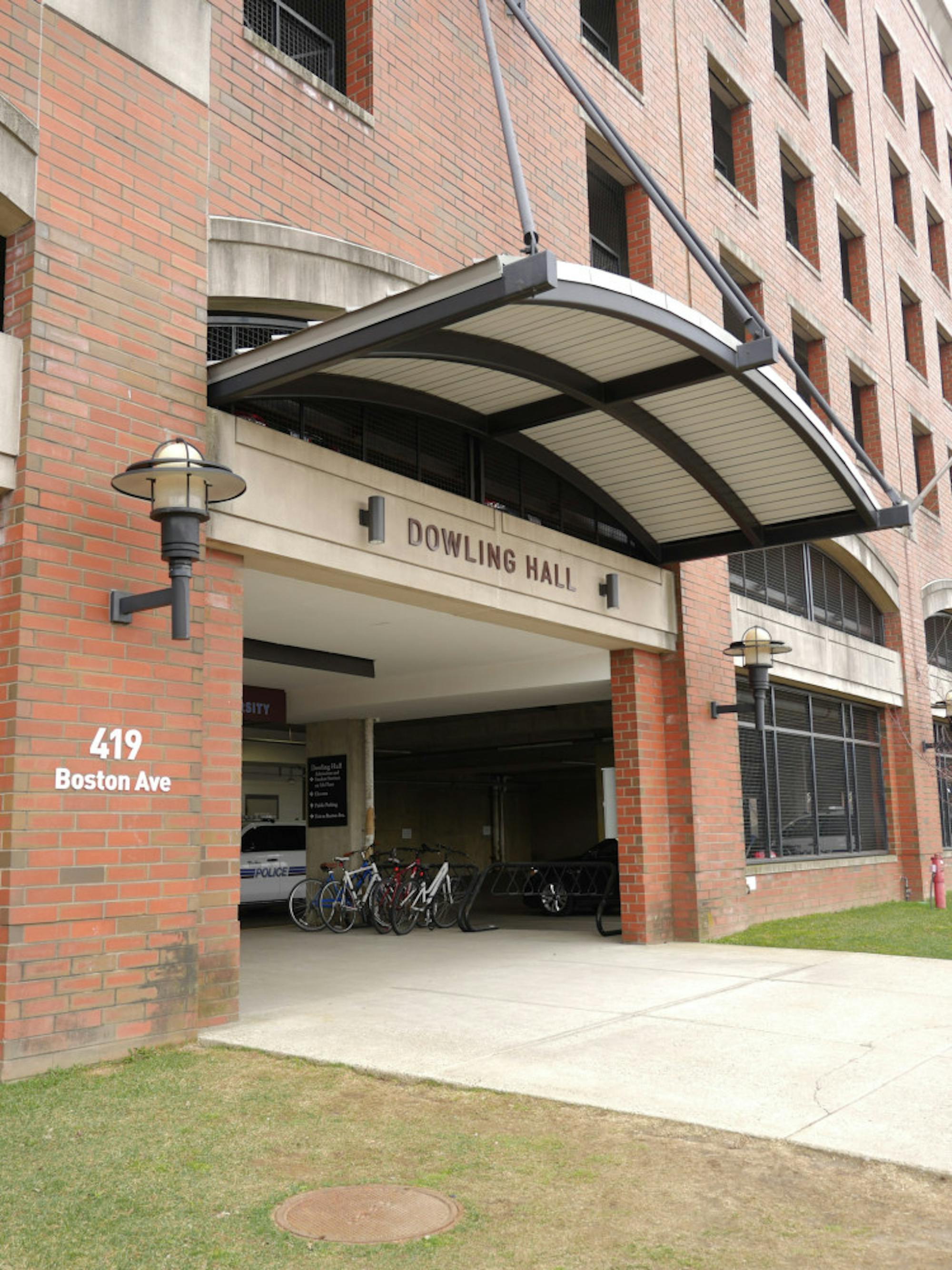An update to parking permit regulations and parking lot access was announced to the Tufts community in an Aug. 17 email. The email emphasized that all parking lots require a Tufts University permit to park and clarified which students — 3rd and 4th years — are able to purchase these permits. Additionally, cameras have been placed in more lots and parking areas on campus to ensure that these regulations are adhered to.
Assistant Director of Transportation and Contract Services John Savino explained the increased use of parking cameras on campus.
“Parking cameras have been in place at Tufts since 2010. The cameras were expanded to more lots on campus in 2020 in anticipation of the opening of the Medford/Tufts MBTA stop,”Savino wrote in an email to the Daily.
The introduction of the new MBTA Green Line Extension stop may increase the demand for parking on campus. Parking Manager Seaneen Breen assured the Daily that there would be enough parking to accommodate high-volume events such as athletic games, and addressed the potential benefit of parking cameras to the Tufts community in an email to the Daily.
“Cameras on campus will help with this need by issuing citations to discourage MBTA commuters from attempting to use Tufts as a commuter lot,”Breen wrote.
In regards to commuter access to the Green Line Extension, the MBTA is planning on building a bike storage facility for 50 covered bikes and 20 uncovered bikes, according to a Dec. 2020 public meeting. Additionally, the MBTA plans to construct a small pick-up and drop-off area for The RIDE, the MBTA’s paratransit service for people who are unable to take the subway due to a temporary or permanent disability.
The installation of additional parking cameras was not costly.
“There was no capital cost for the expansion of the cameras. Tufts pays monthly fees to the parking vendor for use of their technology and hardware,” Savino explained.
Changes were made as to which students were able to purchase parking permits. The email clarified that only third- and fourth-year students are allowed to buy parking permits.
This represents a departure from the last school year. Patrick Collins, the executive director of media relations, explained the change as a return to normalcy after the pandemic.
“The restriction on first year and sophomore student parking on campus was lifted during the pandemic to allow students access to their cars if another shutdown required them to leave campus quickly and to give local students the ability to return home to quarantine, if needed. As we have returned to a ‘new normal,’ the restriction was restored,”Collins wrote in an email to the Daily.
Parking tickets will be issued electronically and then mailed to the address under which the vehicle is registered. For the past two school years, virtual parking permits have been used, and that system will continue this year: obtaining a parking pass is solely based on a car’s license plate number. The introduction of electronic ticketing does not mean that parking attendants will be eliminated.
“Parking attendants continue to patrol Tufts parking areas in addition to automated monitoring,” Savino wrote.
The Aug. 17 email also announced that there was ongoing construction impacting the Dowling Hall Garage, as well as the Fletcher and Cousens parking lots. The Fletcher lot has since been reopened and the Cousens lot has returned to full capacity.
“The Mods – isolation housing – were placed in the Fletcher lot in May of 2022, and the related work impacted the capacity of the lot. That relocation work has concluded,” Savino wrote. “A nearby construction project was impacting the Cousens lot’s capacity, but that is no longer the case.”
Dowling Hall Garage levels 4–-6 are being resurfaced, and Tufts is planning on opening them back up in October, according to Savino.
The expanded use of parking cameras isn’t the only change to the parking system at Tufts. Another shift is the new Tufts Park app, which is tailored specifically for the parking lots on the university campus.
“The parking app was developed by the parking software provider with input from the Tufts transportation office. Their previous app was getting a lot of negative feedback,” Savino wrote. “It was designed for municipalities and used nationwide. Tufts Transportation asked the vendor to build a Tufts-specific parking app tailored to the needs of a university, not a municipality.”






